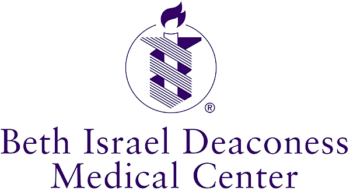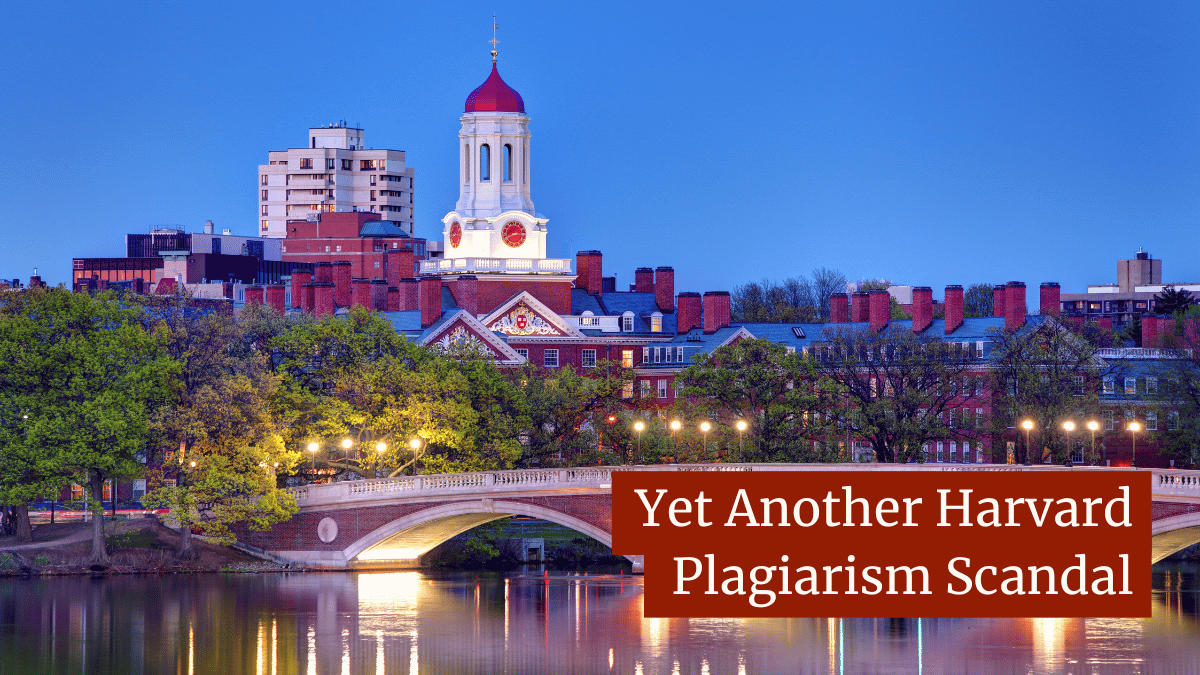Yet Another Harvard Plagiarism Scandal

In a refrain that has become all too familiar, another Harvard University faculty member is facing allegations of plagiarism, this time in an expert witness document that they filed in a major court case.
According to an article by Veronica H. Paulus and Akshaya Ravi at the Harvard Crimson, Dipak Panigrahy is an assistant professor at Harvard Medical School and a cancer researcher at Beth Israel Deaconess Medical Center. He is also an expert witness and is serving on a case involving Lockheed Martin and allegations that the company released toxic chemicals, causing cancer and other issues among residents.
However, on March 18, a district court judge granted Lockheed Martin’s motion to exclude Panigrahy’s 500-page report from the case. The judge cited plagiarism as the reason.
According to the judge, Panigrahy’s report was “a mess” and contained sections copied verbatim from various publications by the International Agency for Research on Cancer (IARC). Though Panigrahy repeatedly cited the IARC in his report, he did not indicate that the text involved was quoted.
The judge also said, “His deposition made the plagiarism appear deliberate, as he repeatedly outright refused to acknowledge the long swaths of his report that quote other work verbatim without any quotation marks at all…” He then said that the “rampant plagiarism” means that the “general causation methodology as a whole is too unreliable to put before a jury.”
Panigrahy, in a statement to The Crimson, said, “I cited to all of the underlying articles and reports that I was accused of plagiarizing, and made clear that I was relying on these sources as part of my analysis.”
Panigrahy also said that he expects the judge’s order to be overturned.
The story is just the latest in a series of plagiarism scandals to hit Harvard. They began in December with allegations that then-President Claudine Gay had plagiarized various papers in her career. This was followed by a series of other plagiarism allegations targeting diversity, equity and inclusion (DEI) officials at the school.
Finally, last week, embattled Harvard professor Francesca Gino, who is already on administrative leave over allegations of data manipulation, was accused of plagiarism in her two books.
It’s another academic/research integrity blow to the university. However, it’s also a unique one that is worth a closer examination.
A Bizarre Tale
Disclosure: I regularly work as an expert witness, though not in this field (I work in copyright and plagiarism matters). I am not involved in this particular case and have not been able to review the allegations against Panigrahy independently.

Two things make this case unusual: The venue where it took place and Panigrahy’s defense.
On the first note, the case is not a regular example of research plagiarism. Though an expert witness report certainly is a work of science, it’s not a traditional journal publication or other research paper.
In that regard, it’s likely most similar to the alleged plagiarism in Gino’s books. Though not formal research publications, her books are works of science that are intended to convey the work Gino did to an audience.
This change in venue means that there are different standards for citation and attribution. For example, a research paper in a journal has a different standard than a legal filing, which differs from a non-fiction book, which differs from an email. Many authors struggle with citation when switching from one kind of work to another because of these issues.
However, that doesn’t appear to be the case here.
The plagiarism, as described, would likely violate just about any citation standard. According to the judge, Panigrahy copied large swaths of text verbatim and failed to indicate that the text was quoted.
Both the judge and Panigrahy seem to agree that the IARC was repeatedly cited in the report. However, the judge says that Panigrahy didn’t just use the information but copied large amounts of text without indicating that it was a quote. Panigrahy, in his response to The Crimson, doesn’t seem to dispute this, only say that he did cite the sources.
That, in turn, is the problem. When you use content verbatim from an outside source, you must cite two things: the ideas/information and the words. Those are two separate but connected acts of citation.
If you properly paraphrase the content, you don’t need to cite the words but still have to cite the information. However, it doesn’t appear that Panigrahy paraphrased at least some of the text and copied and pasted chunks of it instead.
Failure to indicate that text is quoted is plagiarism. That is true both in research papers and expert witness reports. Though this may be a genuine misunderstanding on Panigrahy’s part, there’s not much doubt that copying and pasting large amounts of text without quotation marks does amount to plagiarism in this context.
With that in mind, the judge did the right thing. Even if the information in the report is valid, the citation issues cast too dark a shadow on it. Though the IARC is a fine source to cite, and the findings may still be correct, allowing it to be presented to the jury would not be appropriate.
Simply put, while the citation standards and norms differ, expert witnesses are held to a very high standard regarding their reports. Based on what the judge has said, it doesn’t appear this report met that standard.
Another Plagiarism Blow
In a vacuum, This story is interesting because cases involving plagiarism in an expert witness report are rare. However, as The Crimson pointed out, this case didn’t happen in a vacuum.
This story comes after a string of plagiarism controversies involving Harvard faculty. Though this one is not getting the level of attention of the earlier ones, it’s another case that connects Harvard and plagiarism.
The school has been put through the wringer regarding plagiarism allegations. Applications are down, and the recent controversies have likely played some role. Though I have no doubt the school will be fine in the long run, it needs to rebuild its image and not deal with another plagiarism controversy.
However, there’s not much that Harvard, or any university, could have done here. This was an expert witness report outside of Panigrahy’s duties at the school. Harvard has no authority over this project. The only connection it has to the school is that Panigrahy is also a faculty member.
However, the story speaks to a reality for schools. They can and will be judged for integrity issues they had nothing to do with simply because the person involved is a faculty or staff member.
It isn’t fair, but schools must be prepared to address it and draft policies around it where possible. While schools can’t necessarily control what their employees do with their personal time, they can control how they respond to stories like this one.
It may be best for Harvard to say and do nothing in this case, especially since it has received little attention outside of the school itself. But, if something larger does come up, how the school responds could be as important as the story itself.
Bottom Line
As I’ve read and thought about this story, one question comes to mind: How did the lawyer Panigrahy was working with allow this?
Based on statements by the judge and the defense, the issue appears to have been pretty clear, and even a quick check of the work would have detected the issues. That would have allowed those issues to be corrected before submitting them, preventing this conflict entirely.
Even if the judge eventually changes his ruling, it’s a headache that could have been avoided.
That said, in my experience, lawyers aren’t in the habit of proactively checking expert witness reports for plagiarism. However, maybe they should be, especially if such checks become more common by opposing counsel.
This is a costly mistake in a high-profile case like this one, regardless if the report is readmitted later. A proactive stance could have saved significant time and resources.
In the end, this is not just another blow to Harvard but a possible change to the way expert witness reports are handled. Targeting reports for plagiarism is a relatively simple step that counsel can take and, if successful, can negate powerful and costly evidence.
Lawyers may need to consider whether they will examine opposing reports for plagiarism or check their own before submission. While not a new tactic in this space, it may see a resurgence after the success here.
Want to Reuse or Republish this Content?
If you want to feature this article in your site, classroom or elsewhere, just let us know! We usually grant permission within 24 hours.
